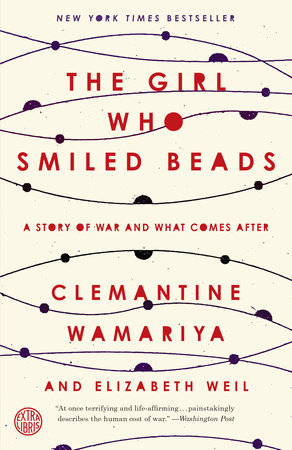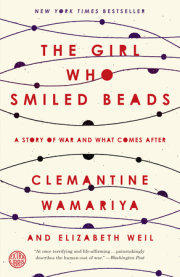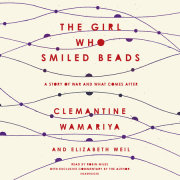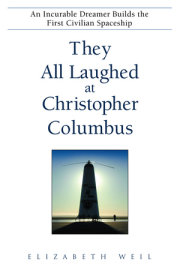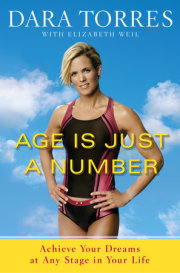***This excerpt is from an advance uncorrected copy proof***
Copyright © 2018 Clemantine Wamariya and Elizabeth Weil
The night before we taped the Oprah show, in 2006, I met my sister Claire at her apartment in a public housing unit in Edgewater, where she lived with the three kids she’d had before age twenty-two, thanks to her ex-husband, an aid worker who’d pursued her at a refugee camp. A black limo arrived and drove us to downtown Chicago, to the Omni Hotel, where my sister used to work. I now can’t think about that moment without also thinking about my own naïveté, but at the time all I felt was elated.
I was eighteen, a junior at New Trier High School, living Monday through Friday with the Thomas family in Kenilworth, a fancy suburb. I belonged to the church youth group. I ran track. I’d played Fantine in the school production of Les Misérables. I was whoever anybody wanted me to be.
Claire, meanwhile, remained steadfast, herself, a seemingly rougher bargain. Unlike me, she was not a child when we got resettled in the United States, so nobody sent her to school or took her in or filled her up with resources—piano lessons, speech therapists, cheerleading camp. Claire just kept hustling. For a while she made a living throwing parties, selling drinks and hiring DJs who mixed American hip-hop, the Congolese superstar Papa Wemba, and French rap. But then she learned it was illegal to sell liquor without a license and she started working full-time as a maid, cleaning two hundred hotel rooms a week.
All I knew about the show we were taping was that it was a two-part series: the first segment showed Oprah and Elie Wiesel visiting Auschwitz, God help us; the second featured the fifty winners of Oprah’s high school essay contest. Like the other winners, I had written about Wiesel’s book Night, his gutting story of surviving the Holocaust, and why it was still relevant today. The book disarmed me. I found it thrilling, and it made me ashamed. Wiesel had words that I did not have to describe the experiences of my early life.
I’d dictated my essay to Mrs. Thomas, as she sat in her tasteful Midwestern house—gracious lawn, mahogany floors—at a huge old computer that took up the whole desk. “Clemantine,” she’d said, “you have to enter. I just know you’ll win.” Mrs. Thomas had three children of her own, plus me. I called her “my American mother” and she called me “my African daughter.” She packed my lunch every day and drove me to school.
In my essay I said that maybe if Rwandans had read Night, they wouldn’t have decided to kill one another.
• • •
On the way to downtown Chicago, Claire and I had the inevitable conversation—is this happening? This is so weird—which was as close as my sister and I got to discussing what
had happened to our lives. If we absolutely had to name our past in each other’s presence, we’d call it “the war.” But we tried not to do that, and that day we were both so consumed by all the remembering and willful forgetting that when we arrived at the Omni and the bellhop asked, “Do you have any bags?” we realized we’d left all our clothes at home.
Claire took the L back to her apartment, where a friend was watching her children—Mariette, who was almost ten; Freddy, who was eight; and Michele, who was five. I stayed in the hotel room, lost.
Harpo Studios gave us each a $150 stipend for dinner. It was more than Claire’s monthly food stamp allowance. When Claire returned we ordered room service. We woke at 4:00 a.m. and spent hours getting dressed.
That day, for the show, the producers directed us to the huge studio. Oprah sat onstage on a white love seat, next to tired old Elie Wiesel in a white overstuffed chair. He was alive, old but alive, which meant the world to me. He kept looking at the audience, like he had a lot to say but there was no time to say it.
In this nice studio, in front of all these well-dressed people, Oprah’s team played the video of Oprah and Elie Wiesel walking arm in arm through snow-covered Auschwitz, discussing the Holocaust.
Then the producers gave us a break. We sat in silence. Some of us were horrified and others were crying.
After that, Oprah said glowing things about all the winners of the essay contest except me. I told myself this was fine. Fine. I hadn’t really gone to school until age thirteen, and when I was seven I’d celebrated Christmas in a refugee camp in Burundi with a shoebox of pencils that I’d buried
under our tent so that nobody would steal it. Being in the audience was enough, right? Plus, I kept wanting to say to Oprah: Do you know how many years, and across how many miles, Claire has been talking about meeting you?
But then Oprah leaned forward and said, “So, Clemantine, before you left Africa, did you ever find your parents?”
I had a mike cord tucked under my black TV blazer and a battery pack clipped to my black TV pants, so I should have suspected something like this was coming. “No,” I said. “We tried UNICEF . . . , we tried everywhere, walking around, searching and searching and searching.”
“So when was the last time you saw them?” she asked.
“It was 1994,” I said, “when I had no idea what was going on.”
“Well, I have a letter from your parents,” Oprah said, as though we’d won a game show. “Clemantine and Claire, come on up here!”
Claire held on to me. She was shaking, but she kept on her toughest, most skeptical face, because she knows more about the world than I do, and also because she refused to think, even after all we’d been through, that anybody was better or more important than she was. When we were dirt poor and alone, she’d be in her seventh hour of scrubbing someone’s laundry by hand and she’d see on a TV an image of Angelina Jolie, swaggering and gleaming, radiating moral superiority, and even then Claire would say, “Who is that? God? You, you’re human. Nothing separates me from you.”
I have never been Claire. I have never been inviolable. Often, still, my own life story feels fragmented, like beads unstrung. Each time I scoop up my memories, the assortment is slightly different. I worry, at times, that I’ll always be lost inside. I worry that I’ll be forever confused. But that day I leapt up onto the set, smiling. One of the most valuable skills I’d learned while trying to survive as a refugee was reading what other people wanted me to do.
“This is from your family, in Rwanda,” Oprah said, handing me an envelope. She looked solemn, confident in her purpose. “From your father and your mother and your sisters and your brother.”
Claire and I did know that our parents were alive. We knew they’d lost everything—my father’s business, my mother’s garden—and that they now lived in a shack on the outskirts of Kigali. We talked to them on the phone, but only rarely because—how do you start? Why didn’t you look harder for us? How are you? I’m fine, thanks, I’ve been working at the Gap and I’ve found it’s much easier to learn to read English if you also listen to audiobooks.
I opened the envelope and pulled out a sheet of blue paper. Then Oprah put her hand on mine to stop me from unfolding the letter. It was a huge relief. I didn’t want to have a breakdown on TV.
“You don’t have to read it right now, in front of all these people,” Oprah said. “You don’t have to read it in front of all these people . . .” She paused, master of stagecraft that she is. “Because . . . because . . . your family . . . IS HERE!”
I started walking backward. Claire’s jaw unhinged in a caricature of shock. Then a door that had images of barbed wire on it—created especially for this particular episode, I assume, to evoke life in an internment camp—opened stage right and out came an eight-year-old boy, who was apparently my brother. He was followed by my father, in a dark suit, salmon shirt, and tie; a shiny new five-year-old sister; my mother in a long blue dress; and my sister Claudette, now taller than me. I’d last seen her when she was two years old and I still believed my mother had picked her up from the fruit market.
I’d fantasized about this moment so many times. In Malawi, I used to write my name in dust on trucks, hoping my mother would see my loopy cursive Clemantine and realize that I was alive. In Zaire, I’d saved coins so I could buy my parents presents. In Tanzania, I’d collected marbles for my older brother, Pudi, who wasn’t there for this reunion. Pudi was dead.
Claire remained frozen. But I, in my TV clothes and blown-out hair, ran toward my Oprah-produced family, arms outstretched. I hugged my brother. I hugged my father. I hugged my tiny little sister. I hugged my mother, but my knees gave out and she had to pick me up. Then I hugged her. I hugged Claudette, my little sister, little no more. I walked across the stage and hugged Oprah. I hugged lovely, weathered Elie Wiesel.
The cameras were so far away that I forgot I was participating in a million-viewer spectacle, that my experience, my joy and pain, were being consumed by the masses, though I was aware enough to realize that everybody in the audience was crying.
A few hours later, though it seemed like minutes, we found ourselves on the sidewalk outside the studio, and my family took a black limo north to my sister’s apartment. She lived in the front unit in a squat brick low-rise, across the street from the L tracks and a block away from an abandoned wooden house with a gable roof, a once fantastic, now forgotten home that I hoped would someday be ours. I would put everybody in it. We would be a family again.
Nobody talked in the car. In the apartment, nobody knew what to do, either. My mother, in her long blue dress, kept sitting down and standing up and touching everything—the living room walls, the TV remote—and singing about how God had protected us and now we must serve and love him. My father kept smiling, as though someone he mistrusted were taking pictures of him. Claire remained nearly catatonic: rocking, stone-faced. I thought she’d finally gone crazy, for real.
I sat on Claire’s couch, looking at my strange new siblings, the ones who’d replaced me and Claire. They looked so perfect, their skin unblemished, their eyes alight, like an excellent fictional representation of a family that could have been mine. But they didn’t know me and I didn’t know them and the gap between us was a billion miles wide.
I fell asleep crying on Mariette’s bed and woke still wearing my Oprah shoes.
The next day was Friday. Of course, I didn’t go to school. We needed to start making up for so much lost time. Yet I couldn’t look at my parents—they were ghosts.
I felt gratitude, yes. Oprah had brought my parents to me. But I also felt kicked in the stomach, as though my life were some psychologist’s perverse experiment: Let’s see how far we can take a person down, and then how far we can raise her up, and then let’s see what happens!
Saturday, my family, along with the Thomases, drove up the lakeshore to the Chicago Botanic Garden, where we stared at the Illinois lilies and roses. We all wanted these to be beautiful links to the lilies and roses in Kigali, threads knitting this present to that past, but everything was awkward, and it felt as though cameras were still following us around. Sunday we did Navy Pier—the gaudy Ferris wheel, the sticky cotton candy, all the tourist stuff.
My father kept smiling his fake, pained smile. Mine probably looked the same: a smile covering a scream. Claire barely said a word. Then, Monday morning, my parents and new siblings left on the flight back to Rwanda that Oprah’s people had booked for them, and Mrs. Thomas picked me
up as usual at Claire’s apartment. I had no idea how to make sense of what had just happened. So I just ran out to her Mercedes and she dropped me off at school.
. All rights reserved. No part of this excerpt may be reproduced or reprinted without permission in writing from the publisher.

